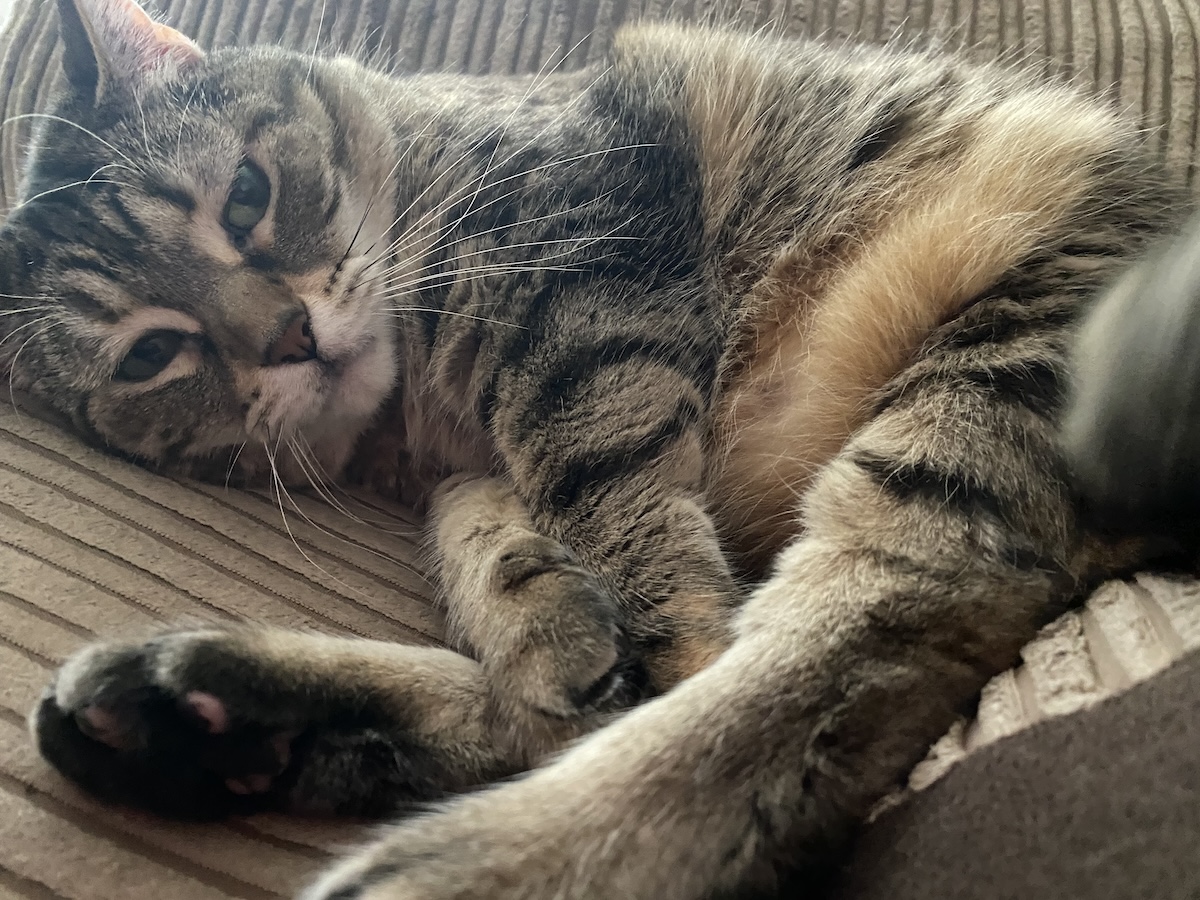Click to Skip Ahead
Cats come in all shapes and sizes, and while some felines can get impressively large, some STAY incredibly small, and many people wonder what the smallest cat is. Currently, Tinker Toy is the smallest cat ever recorded, but keep reading as we discuss other famous cats in this category, along with a few of the smallest breeds.
The All-Time Smallest Cats
1. Mr. Peebles
Mr. Peebles was a tiny cat from Illinois that weighed only 3.1 pounds and stood 6.1 inches tall. The Guinness Book of World Records recognized him as the world’s smallest cat in 2012. Despite his owners originally worrying that he was malnourished, Mr. Peebles was in good health and lived a happy life.
2. Tinker Toy
Tinker Toy, a Himalayan-Persian mix that measured just 2.75 inches tall and 7.5 inches long, is the current record-holder for the smallest cat ever recorded. Tinker Toy lived in Taylorville, Illinois, was born on 25 December 1990 and died in November 1997.
3. Lilieput
The smallest living cat is Lilieput, the Munchkin. She won the title for Smallest Domestic Cat in 2015 when she was 10. She stands 5.25 inches tall.

4. Fizz Girl
Fizz Girl was the world’s shortest cat in the Guinness World Records 2012 Edition. She was a Munchkin cat that stood 6 inches tall and was from California. She was also the mother of another tiny cat, Pixel.
5. Pixel
Pixel is a tiny cat that almost won the title of the world’s shortest cat. She stood only 5 inches tall and was the daughter of Fizz Girl.
6. Cye
Cye was the shortest cat in 2014, measuring only 5.35 inches tall. He was from Ontario, Canada, and despite an injury to his eye when he was a kitten, he lived a healthy and happy life as an indoor cat.
The Smallest Cat Breeds
Munchkin Cats

Munchkin cats have an adorable appearance due to their incredibly short legs, which helps make them one of the smallest breeds. These cats usually weigh less than 9 pounds and have plenty of energy. The Munchkin is a relatively new breed that The International Cat Association recognized in 1997, and they received championship status in 2003.
Singapura Cats

Singapura cats are one of the tiniest domestic cat breeds. With their compact bodies and large, expressive eyes, they are a huge hit with anyone who encounters them. These cats usually weigh less than 8 pounds and have a short silky-smooth coat. The living record-holder for the smallest Singapura cat is Itty Bitty, which measures a mere 5.1 inches in height.
Rusty-Spotted Cats

Rusty-Spotted Cats are native to India and Sri Lanka and are considered one of the smallest wild cat species in the world. They have beautiful fur with small spots and stripes, and they are roughly half the size of the average domestic cat. They usually weigh 2–4 pounds and have a body length of 14–19 inches. The record-holder for the smallest Rusty-Spotted Cat is Nugget, which measures approximately 13 inches in length. These elusive cats are rarely seen in the wild and are known for their agility and excellent hunting skills.
Conclusion
From the smallest breeds to all-time tiny felines, the world of miniature cats is actually quite large! These cats defy expectations with their small stature, captivating people with their playful personalities and affectionate nature. While the Munchkin breed seems to produce the largest number of tiny cats, other species, like the Singapura or the elusive Rusty-Spotted Cat, are also quite small. The all-time record-holder, Tinker Toy, was a Himalayan-Persian mix.
Read Also
Featured Image Credit: MDavidova, Shutterstock











